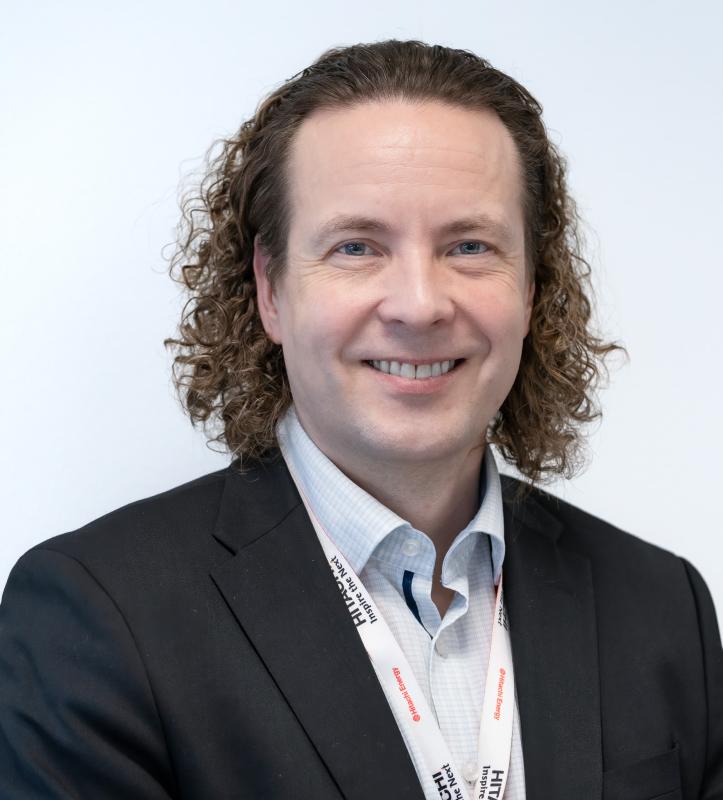
Petri Kärki's doctoral thesis in industrial management, The Impact of Customer Order Lead Time-based Decisions on the Firm´s Ability to Make Money. Case Study: Build to Order Manufacturing of Electrical Equipment and Appliances was examined on Thursday 26 April 2012.
- Press release (in Finnish): Toimitusajan joustolla kannattavuutta
- Dissertation: The impact of customer order lead time-based decisions on the firm's ability to make money : case study: build to order manufacturing of electrical equipment and appliances
What is the best thing about your job?
I have spent my whole career working for a large global company, where I have had the opportunity to work in a variety of roles, both in Finland and abroad. I would say that diversity is the best part of my job. Now, I'm responsible for leading the European sales team at Hitachi Energy's Energy Systems and Storage. Renewable energies and reducing our carbon footprint are trendy and inspire me to think about the carbon footprint our activities will leave for future generations. This is a great industry and definitely the right industry to be in right now.
What are the highlights of your career?
There are many different highlights and turning points in my career. At the beginning, I worked in the assembly and final testing of protection relays, from there I moved into sales support and was involved in building the company's first website and trading pages. I have always studied alongside my work, and throughout the dissertation process I worked in our Corporate Research Centre. As a researcher, I got involved in corporate-level strategy work. I got to work with the university, and we simulated supply chain models, among other things. It was great to get used to these projects on a global scale. After completing my dissertation, I jumped into the next phase: first to manage the sales account process in Finland, then to manage the European sales team, and then the global sales team.
Opportunities to meet many great leaders have been inspiring. Along the way, I have learned that you cannot divide things, processes and many other things into positive and negative, but into things and processes that work well and those that can be improved.
How have your doctoral studies and research supported you in your current role?
The dissertation has supported and contributed to the fact that my thinking is now broader. During my studies, I networked with other doctoral students and researchers, and this network is really important to me. I still have people at the university that I can call and work with on challenges that come up, and this is a win-win situation.
Doing my dissertation forced me to step outside my comfort zone and into statistics, which was very rewarding. I learned to analyse the impact of decisionsand to understand how different factors correlate with each other. A deeper insight into long-term goals has been a valuable currency in my career. Although not everything we learn is directly applicable in practice, it can still influence the way we think and our problem-solving skills.
How did you decide on the topic for your dissertation?
The topic came from an improvement project in our company. We had certain metrics, but we didn't have an answer to how delivery time correlated with company profitability, so I wanted to find out. Now we know how time correlates and what the factors are that contribute to better profitability.
How did you finance your studies?
I worked during my studies, but I also received support from the Academy of Finland, which allowed me to focus full-time on my dissertation for about six months.
Why did you study to become a doctor?
I have to admit that I had never thought about doctoral studies. My supervisor, Professor Merja Wanne, gave me full marks for my master's thesis. Matti Linna was also present when I listened to the final feedback, and together they encouraged me to continue to doctoral studies. I didn't do it right away, but the idea stuck and within a year I applied to the University of Vaasa. So, it was a lucky coincidence that I became a doctor, even though I didn't know it myself at the time.
What would you say to someone who is still considering doing a doctorate?
My advice to doctoral students is to take it as a hobby, enjoy it and do a dissertation on a subject that is important to you. Although I did my dissertation on a subject that was important to the company, it was also interesting and important to me. Focus on your own interests, then your studies will become a hobby. Doctoral studies are pretty much an independent effort, but in a good way, they also bring positive energy. Networking with other students and researchers also helps you to keep going.